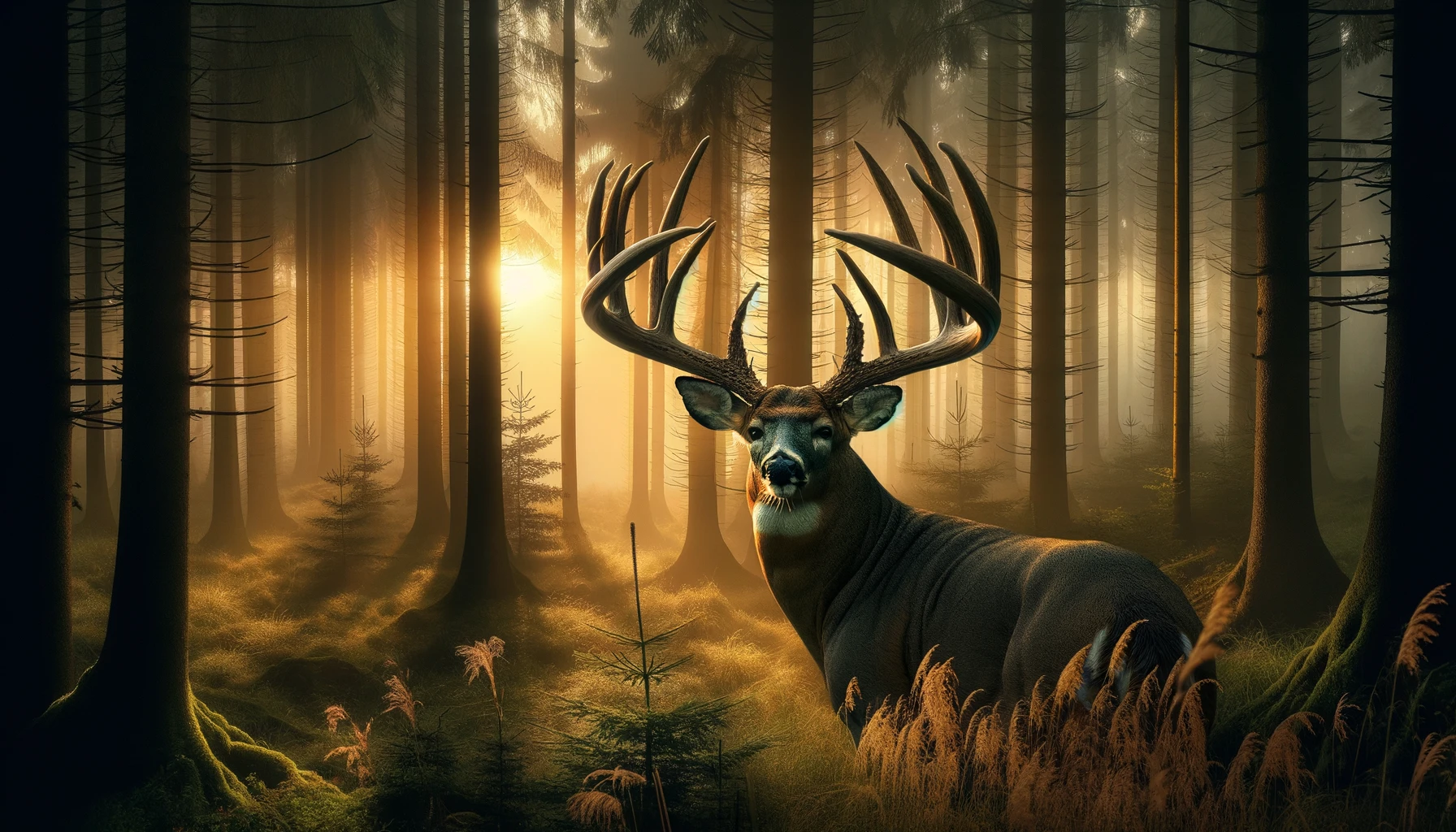
The pursuit of a 200-inch whitetail deer is more than a hobby; it’s a passion that borders on obsession for many hunters. This majestic animal represents not just the pinnacle of whitetail genetics but also a symbol of hunting prowess, patience, and sometimes, sheer luck. In this comprehensive guide, we’ll explore the allure of the 200-inch whitetail, uncovering why this milestone captivates hunters and how it shapes the ethos of deer hunting culture.
Table of Contents
A whitetail deer’s antlers are measured using a system developed by the Boone and Crockett Club. This scoring system considers various dimensions, including antler length, circumference, and spread. A whitetail scoring 200 inches or more is a rarity, making it a highly coveted trophy among hunters.
The growth of such impressive antlers is influenced by genetics, nutrition, and age. Regions known for producing 200-inch whitetails often have optimal food sources, proper management practices, and minimal pressure, allowing deer to reach their full genetic potential.
Hunting a deer of this caliber requires more than just basic hunting skills. It involves meticulous scouting, understanding deer behavior, and often, the implementation of quality deer management (QDM) principles. We’ll delve into effective strategies that increase your odds of encountering a giant whitetail.
The journey toward harvesting a 200-inch whitetail is fraught with challenges. It tests a hunter’s patience, skill, and dedication. We’ll share inspiring stories of hunters who achieved this milestone, highlighting the persistence required to succeed.
The allure of the 200-inch whitetail has positive ripple effects on conservation and habitat improvement efforts. Hunters and landowners invest in land management and conservation practices, aiming to create environments where whitetails can thrive.
The pursuit of a 200-inch whitetail embodies the principles of ethical hunting, wildlife management, and the deep respect hunters have for nature. It’s a testament to the hunting community’s commitment to conservation and sustainable practices.
Choosing the right equipment is crucial in the quest for a 200-inch whitetail. From the latest in camouflage technology to advanced optics and firearms, we’ll recommend gear that can help tilt the odds in your favor.
Trail cameras have revolutionized the way hunters scout for big deer. We’ll discuss how to leverage these tools effectively to monitor potential trophy deer throughout the year.
The importance of precision and reliability cannot be overstated when hunting a trophy of this magnitude. We’ll guide you through selecting firearms and ammunition that offer the best performance for big whitetail hunting.
With great trophies comes great responsibility. We’ll explore the ethical considerations of hunting big whitetails, emphasizing fair chase principles and the importance of wildlife management.
The stories of 200-inch whitetails are not just about the hunters who pursue them but about the legacy these magnificent animals leave behind. They inspire generations of hunters to appreciate the beauty of nature, the thrill of the hunt, and the importance of conservation.
The allure of the 200-inch whitetail lies not just in its rarity but in what it represents — a deep connection with the wilderness, a respect for wildlife, and the eternal hope that fuels every hunter’s dream. As we chase these elusive giants, we’re reminded of why we hunt: for the challenge, the conservation, and the camaraderie.
Answer: A whitetail deer scores 200 inches based on its antler size, which is measured using the Boone and Crockett scoring system. This system evaluates various factors, including antler length, circumference, and spread. A score of 200 inches or more is rare and signifies an exceptional trophy.
Answer: Extremely rare. A 200-inch whitetail is a once-in-a-lifetime find for most hunters, representing less than 1% of the whitetail population. Such a trophy is a testament to superior genetics, optimal habitat, and the deer’s ability to mature fully.
Answer: Areas with rich agricultural land, managed woodlands, and robust conservation practices tend to produce 200-inch whitetails. States like Iowa, Illinois, Kansas, and Ohio are renowned for yielding trophy deer thanks to their habitat management and quality deer management practices.
Answer: Yes, with the right preparation and knowledge. However, successfully hunting a 200-inch whitetail requires advanced scouting, understanding deer behavior, and sometimes access to managed lands that promote the growth of trophy deer. It’s also essential to practice ethical hunting and have patience.
Answer: Increase your chances by scouting year-round, using trail cameras effectively, managing food plots, and practicing scent control. Understanding the specific deer’s patterns and movements in your hunting area is crucial. Additionally, investing in quality gear and maintaining a high level of hunting ethics can improve your odds.
For decades, the 3–9×40 rifle scope has been one of the most iconic optics used…
Tuning a compound bow can feel intimidating, especially if you’re new to archery or don’t…
The world of compound bows is filled with innovation, craftsmanship, and brand loyalty. Among all…
A hunting rifle is one of the most trusted tools in the field. It doesn’t…
Upland bird hunting especially for pheasant and quail is one of the most rewarding pursuits…
A hunting rifle is more than just a tool it’s a trusted companion in the…
This website uses cookies.